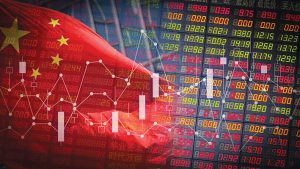BLOOMBERG
Confidence is in short supply among Chinese investors these days, confounding analysts who say reasons to own the market are finally coming true.
The MSCI China Index’s valuations are shrinking and 12-month rolling returns are negative, a sign investors are pricing in an earnings contraction. Recession-proof trades are gaining traction, with a defensive strategy of buying dividend payers suddenly among the year’s most profitable.
Investor pessimism — worsened by US tensions — has become so entrenched it’s suppressing prices when improving fundamentals may justify a move higher. The MSCI China is lagging almost every other global benchmark in April, even after economic data surpassed estimates by the most since 2006 and global banks raised their forecasts for earnings growth.
“There’s a clear negative bias right now,†Winnie Wu, China equity strategist at Bank of America Corp, said by phone. “There’s a sense that China’s post-Covid recovery needs a longer track record.â€
Analysts are calling for an average 22% surge in operating income for MSCI China companies — the fastest growth since 2011. But investors keep selling: tech shares are in a bear market and charts are forming ominous indicators. Mainland and Hong Kong stocks lost a combined $866 billion in just over a week — a faster selloff than during October’s capitulation.
Fears of what China would look like under President Xi Jinping’s total control led to a massive selloff following the party Congress in October. While investors returned after Beijing dropped Covid controls and promised to prioritise growth, the selloff now may reflect the continued unease over a government that cracked down on the nation’s most profitable companies at the expense of the economy and investors.
Market watchers see several reasons for deteriorating sentiment. Most say tensions with the US are spooking international funds, while some blame divestments by famed long-time China investors or corporate insiders.
 The Gulf Time Newspaper One of the finest business newspapers in the UAE brought to you by our professional writers and editors.
The Gulf Time Newspaper One of the finest business newspapers in the UAE brought to you by our professional writers and editors.
